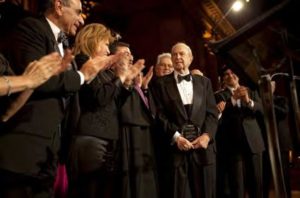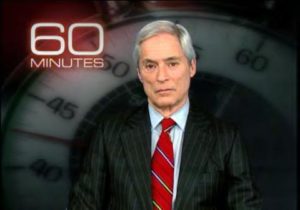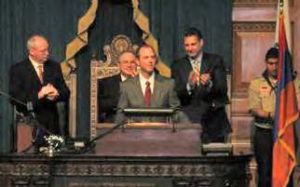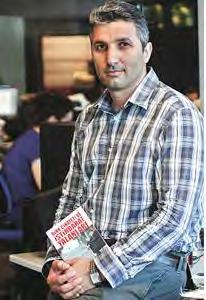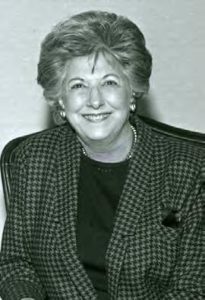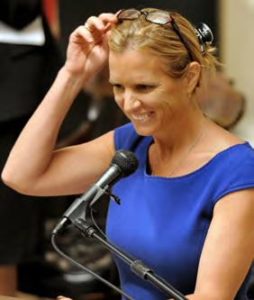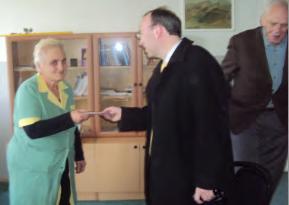JANUARY
• One of the “leftovers of the sword,” Fethiye Cetin, 60, a prominent civil rights attorney in Turkey, had her sense of identity shattered when she learned from her grandmother that she was one of thousands of Armenian children who were kidnapped and adopted by Turkish families during the period of the Armenian Genocide. Having thought of herself as a Turkish Muslim, she was astounded to discover that she was, in fact, an Armenian. When her grandmother died, in 2004, Cetin had her obituary published in Agos, the Turkish-Armenian newspaper in Istanbul, in the hope that she might hear from some of her Armenian relatives. Eventually, she was able to locate some of her extended family in New York.
• A concert at the Massachusetts Institute of Technology on January 22 honored linguist and political activist Noam Chomsky and featured music by Armenian composer, Edward Manukyan from Southern California. His compositions performed on the occasion featured works based on Chomsky’s speeches and writings. Chomsky, a linguist who is known worldwide for his theory of generative grammar, has also distinguished himself in recent decades as a champion of human rights.
• Armenia stood ready to assist Haiti in the wake of the devastating earthquake that took place early in January, offering to send a 52-man rescue team composed of rescuers, translators, doctors and a dog, especially trained to locate survivors or bodies. The experience of the Spitak earthquake in 1988 has sensitized Armenia to the needs of earthquake victims both during the crisis and in the aftermath of the quake.
• Armenia’s Foreign Minister Eduard Nalbandian cast doubt on the future of a rapprochement after Turkey accused Armenian’s Constitutional Court of trying to rewrite the text of the deal with a court ruling. Turkish ally Azerbaijan has raised strong objections to the attempts to reconcile relations between Turkey and Armenia. Turkey responded to its ally’s criticisms by demanding that Armenia make concessions to Azerbaijan over the breakaway region of Nagorno Karabagh.
• In Watertown, Mass., on January 24, the Friends of Hrant Dink marked the third anniversary of the assassination of Dink, the Turkish-Armenian editor of Agos newspaper in Istanbul, with a memorial luncheon after church services at St. James Armenian Church. Dr. Taner Akçam, director of the Armenian Studies program at Clark University in Worcester, paid tribute to Dink, saying that when the border between Armenia and Turkey opens, the first crossing should be named Hrant Dink Gate.




